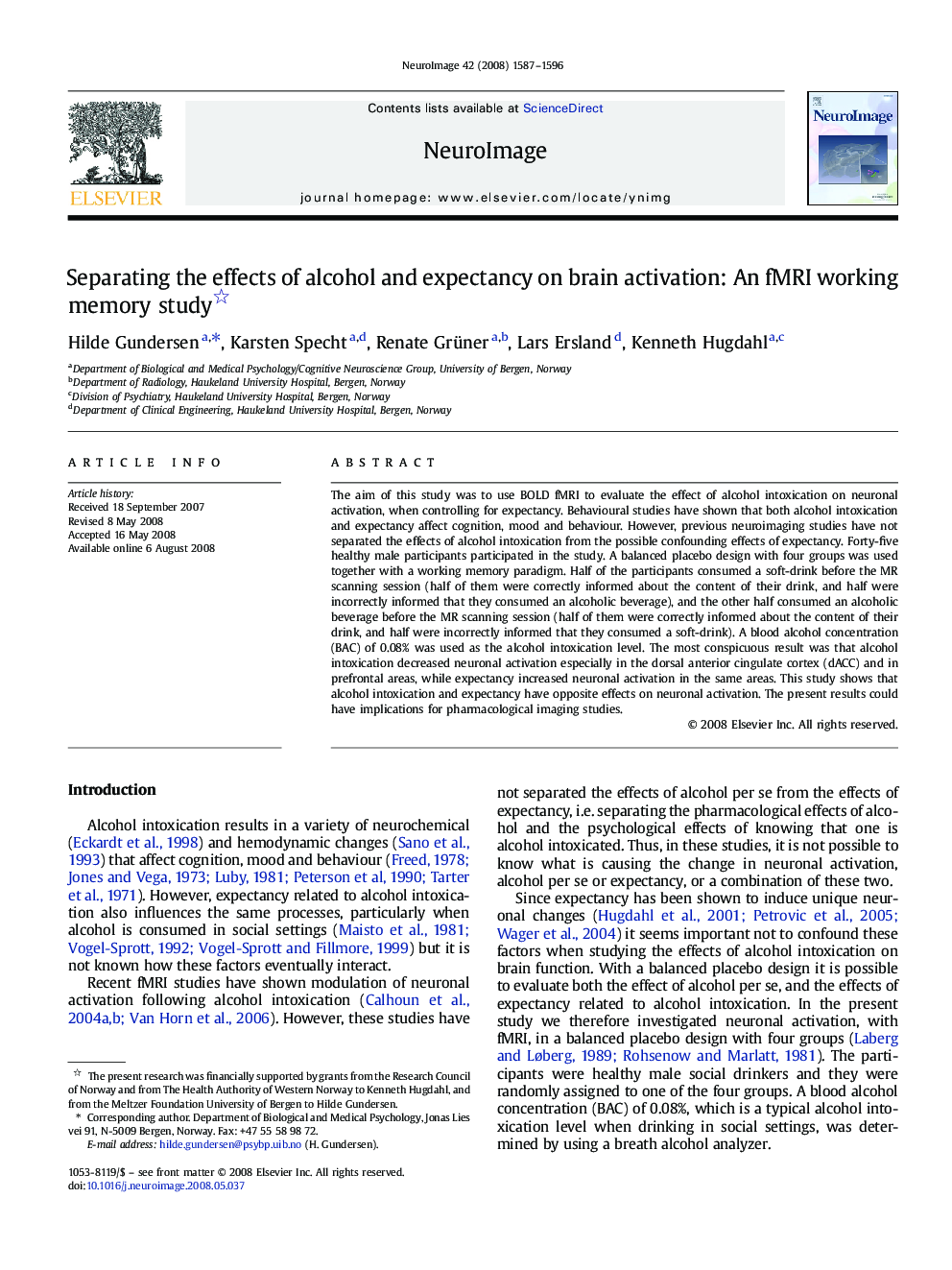| Article ID | Journal | Published Year | Pages | File Type |
|---|---|---|---|---|
| 6038924 | NeuroImage | 2008 | 10 Pages |
Abstract
The aim of this study was to use BOLD fMRI to evaluate the effect of alcohol intoxication on neuronal activation, when controlling for expectancy. Behavioural studies have shown that both alcohol intoxication and expectancy affect cognition, mood and behaviour. However, previous neuroimaging studies have not separated the effects of alcohol intoxication from the possible confounding effects of expectancy. Forty-five healthy male participants participated in the study. A balanced placebo design with four groups was used together with a working memory paradigm. Half of the participants consumed a soft-drink before the MR scanning session (half of them were correctly informed about the content of their drink, and half were incorrectly informed that they consumed an alcoholic beverage), and the other half consumed an alcoholic beverage before the MR scanning session (half of them were correctly informed about the content of their drink, and half were incorrectly informed that they consumed a soft-drink). A blood alcohol concentration (BAC) of 0.08% was used as the alcohol intoxication level. The most conspicuous result was that alcohol intoxication decreased neuronal activation especially in the dorsal anterior cingulate cortex (dACC) and in prefrontal areas, while expectancy increased neuronal activation in the same areas. This study shows that alcohol intoxication and expectancy have opposite effects on neuronal activation. The present results could have implications for pharmacological imaging studies.
Related Topics
Life Sciences
Neuroscience
Cognitive Neuroscience
Authors
Hilde Gundersen, Karsten Specht, Renate Grüner, Lars Ersland, Kenneth Hugdahl,
